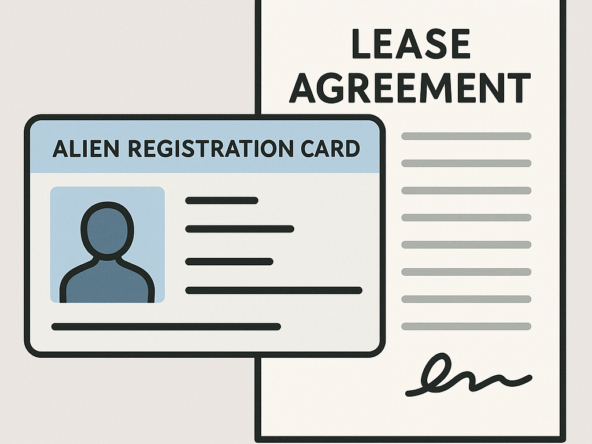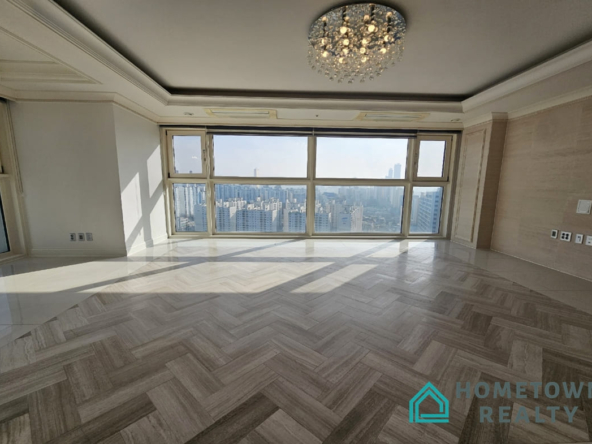Top 7 Mistakes Expats Make When Renting an Apartment in Seoul (And How to Avoid Them)
1. Confusing Jeonse with Regular Deposit-Based Rent
Many expats mistakenly assume that paying a high deposit with low monthly rent means they’ve secured a jeonse contract. In reality, jeonse is a uniquely Korean rental system where the tenant pays a lump-sum deposit—often 60% to 80% of the property’s value—and lives without paying monthly rent. On the other hand, what most foreigners experience is a wolse contract, where a mid-sized deposit is required alongside monthly rent. Some embassies or companies follow yet another model, paying a small deposit and prepaying rent for six months to two years in advance. Understanding these distinctions is important, especially since contract terms can vary widely. For a more detailed breakdown, you can read our guide to Korea’s rental systems.
2. Relying Only on English Listings
While English-language property sites might feel more accessible, they are often outdated or missing better deals that exist on local Korean platforms. Many of the best listings never make it onto expat-focused websites at all. This creates a situation where foreigners only see a fraction of what’s actually available—and often at inflated prices. A bilingual local agent who can navigate both Korean and English platforms is usually the key to finding real-time listings that match your needs and budget more accurately.
3. Assuming All Apartments Come with Appliances
In many countries, it’s common for rentals to come equipped with basic appliances like a washing machine, dryer, or air conditioner. But in Korea, landlords often don’t provide these because local tenants typically bring their own. As a result, expats are frequently surprised to find that essential appliances are missing when they move in. It’s not unusual for a landlord to remove even the air conditioner if the previous tenant installed it themselves. Because of this, it’s critical to check which appliances are included and whether the landlord is willing to install anything that’s missing before finalizing the contract.
4. Not Checking Neighborhood Accessibility
An apartment may look great in photos, but its location can completely change your day-to-day experience. Some neighborhoods are visually appealing yet inconvenient, with limited access to subways, buses, grocery stores, or cafés. In a city like Seoul, where many people rely heavily on public transportation, being close to a station can make a big difference in quality of life. If you’re new to the city, it helps to understand how Seoul’s transit system works—this subway map on Wikipedia is a good place to start.
5. Ignoring Building Rules
Even if you’ve found the perfect apartment, certain building policies might make it a poor fit for your lifestyle. Many buildings in Seoul have their own rules regarding noise, pets, and parking. Some don’t allow pets at all, while others might have restrictions on where and when deliveries can be made. These rules are often not clearly stated in listings, so it’s important to ask your agent to confirm what is and isn’t allowed in the building before you sign anything.
6. Skimming Through the Contract
Lease agreements in Korea are often long and written entirely in Korean, which can make it easy to overlook important details. Some expats rely too heavily on verbal summaries without reading the contract thoroughly. This can lead to problems later, especially regarding move-in/move-out dates, penalties for breaking the lease, or the process of getting your deposit back. It’s always safer to request a full translation or work with an agent who can walk you through each clause in detail.
7. Waiting Too Long to Decide
In competitive areas like Hannam, Ichon, and Gangnam, desirable properties don’t stay on the market for long. Foreigners sometimes take extra time to consider their options, only to find the apartment they liked is already gone. While it’s smart to think carefully before signing, you should also be prepared to act quickly once you find something that fits your needs. In most cases, minor details can still be negotiated after securing the property.
If you’re planning to rent in Seoul, being aware of these common mistakes can save you a lot of time and stress. And if you’d like help finding the right home, feel free to contact us for personalized support.




